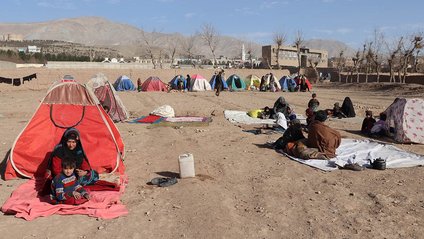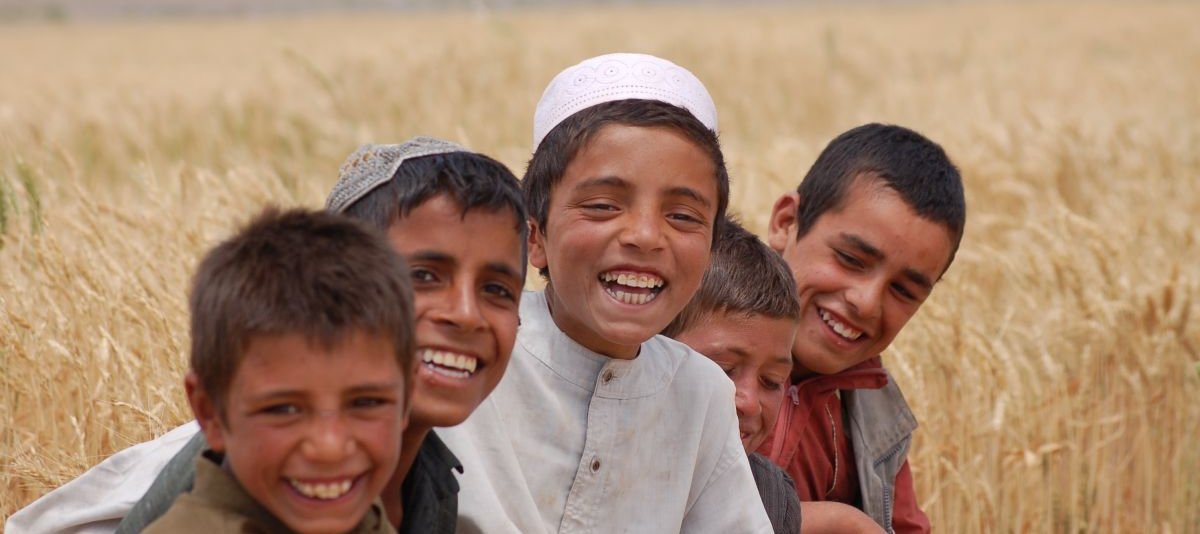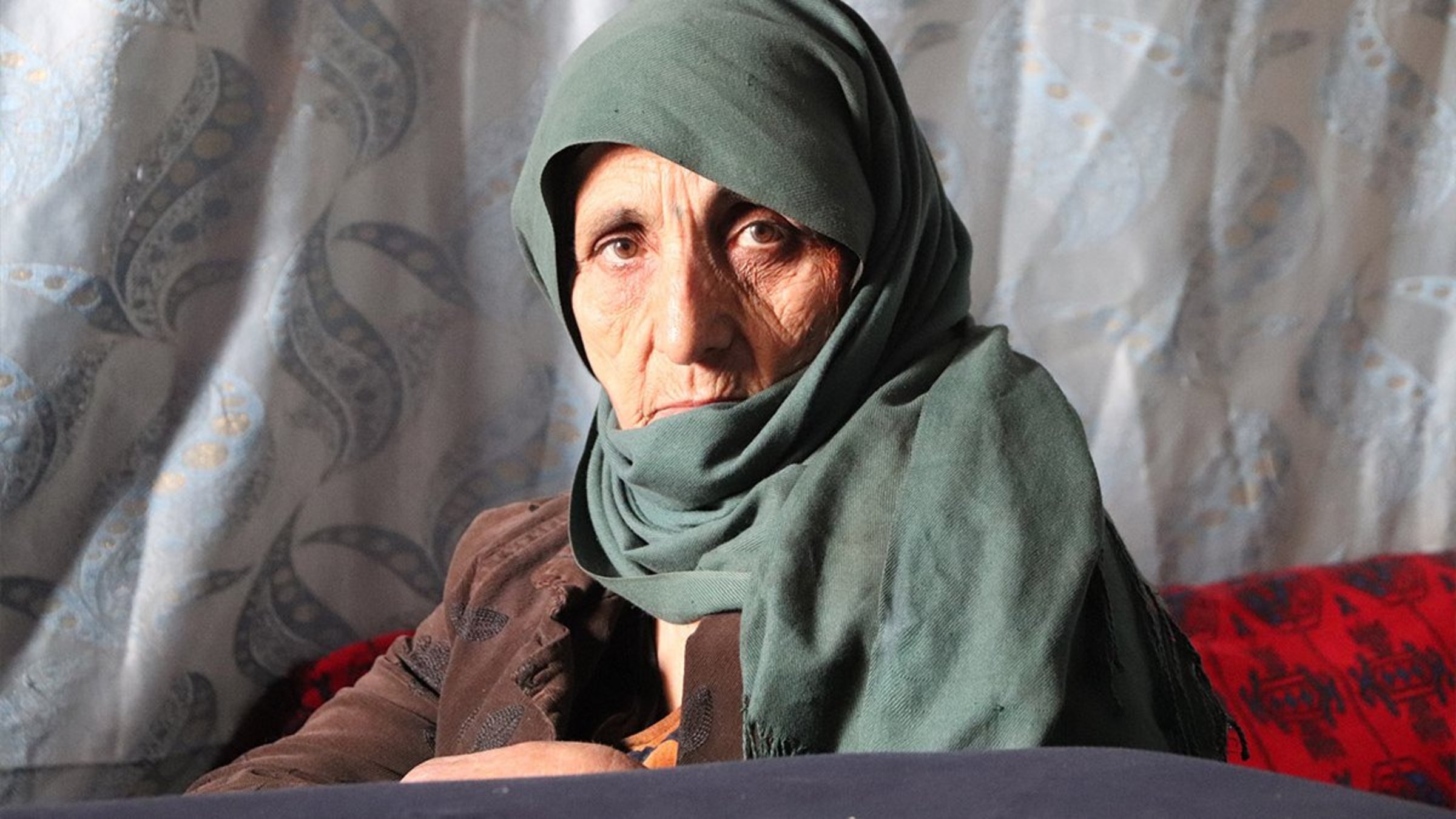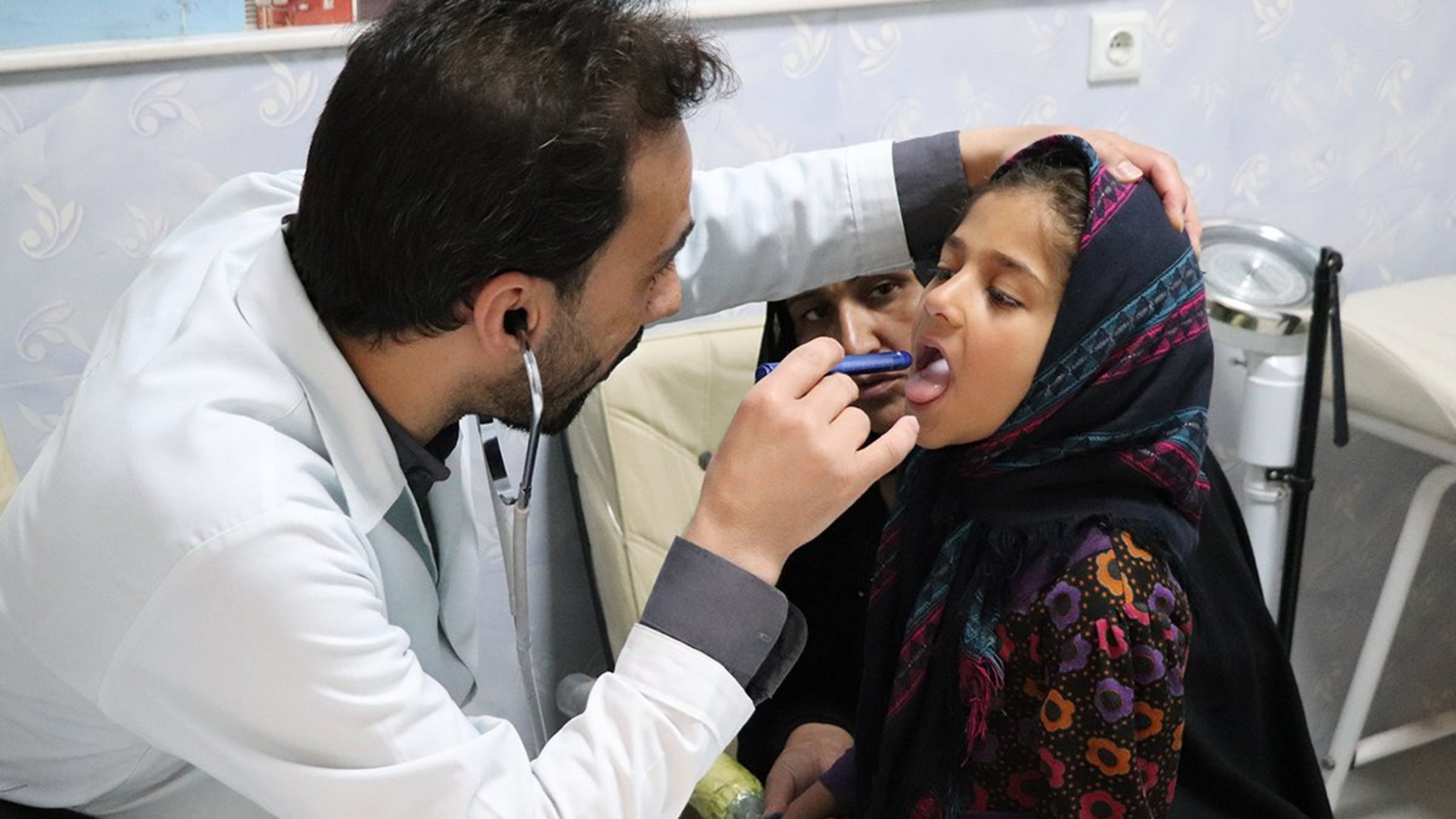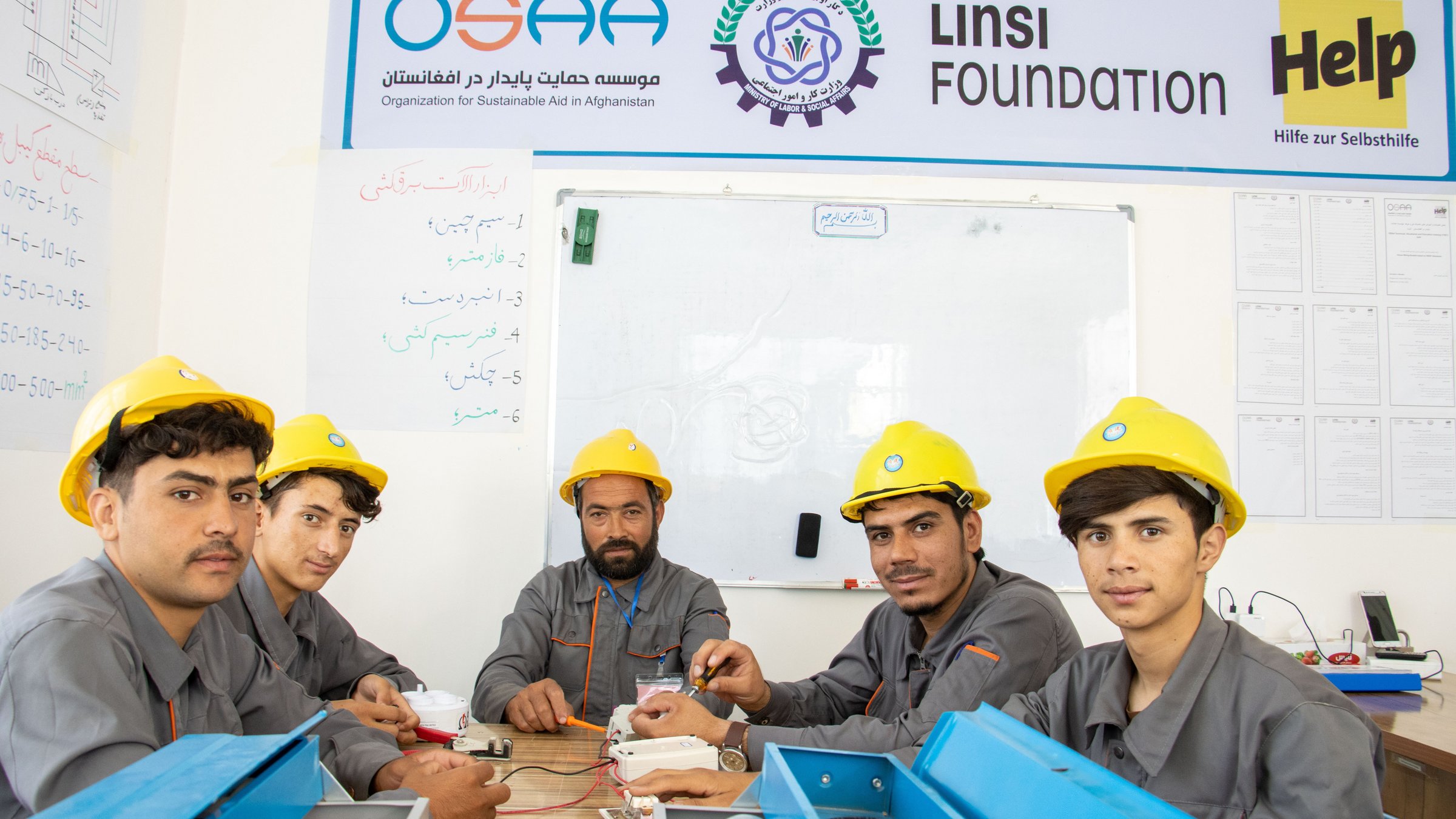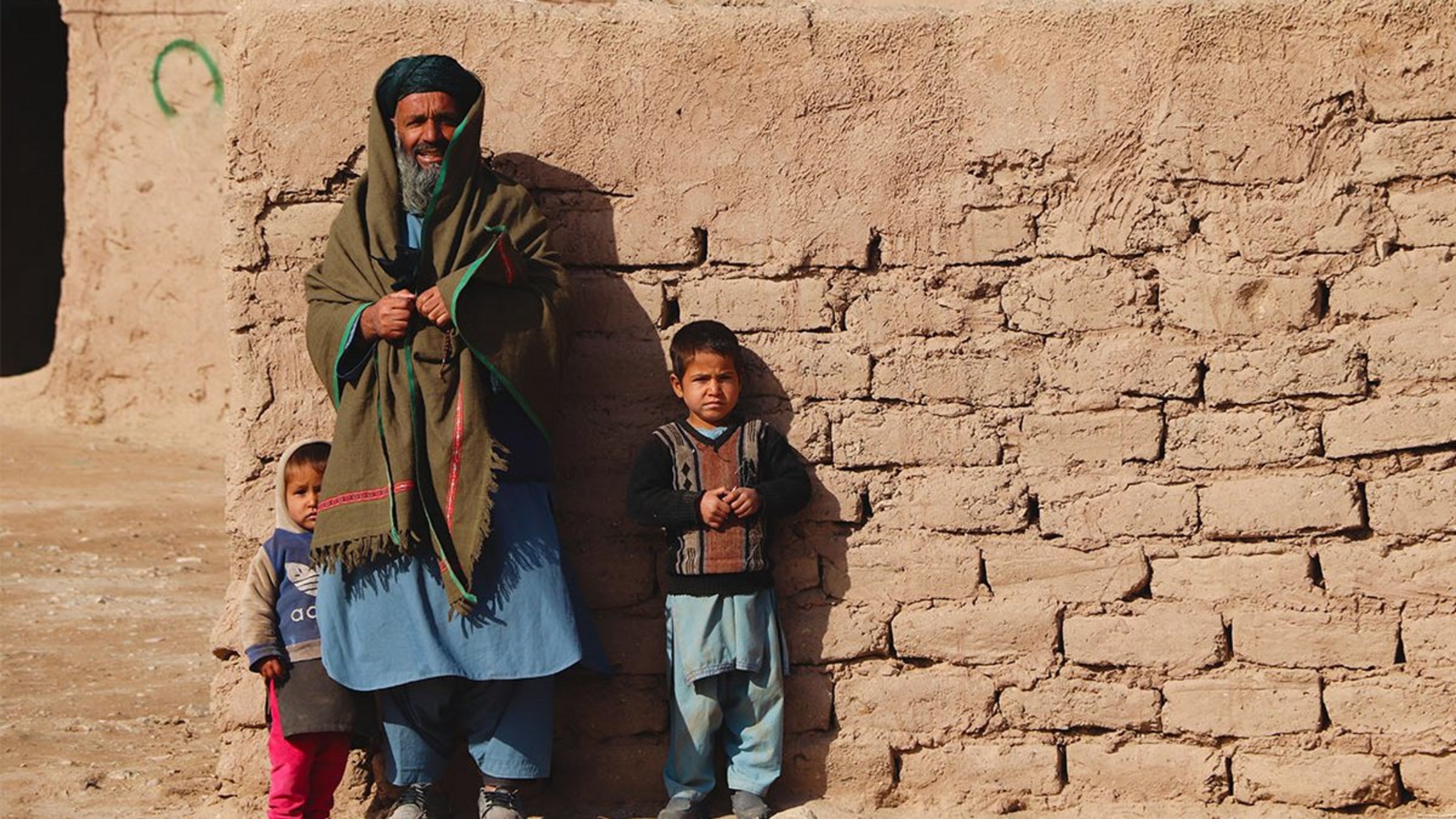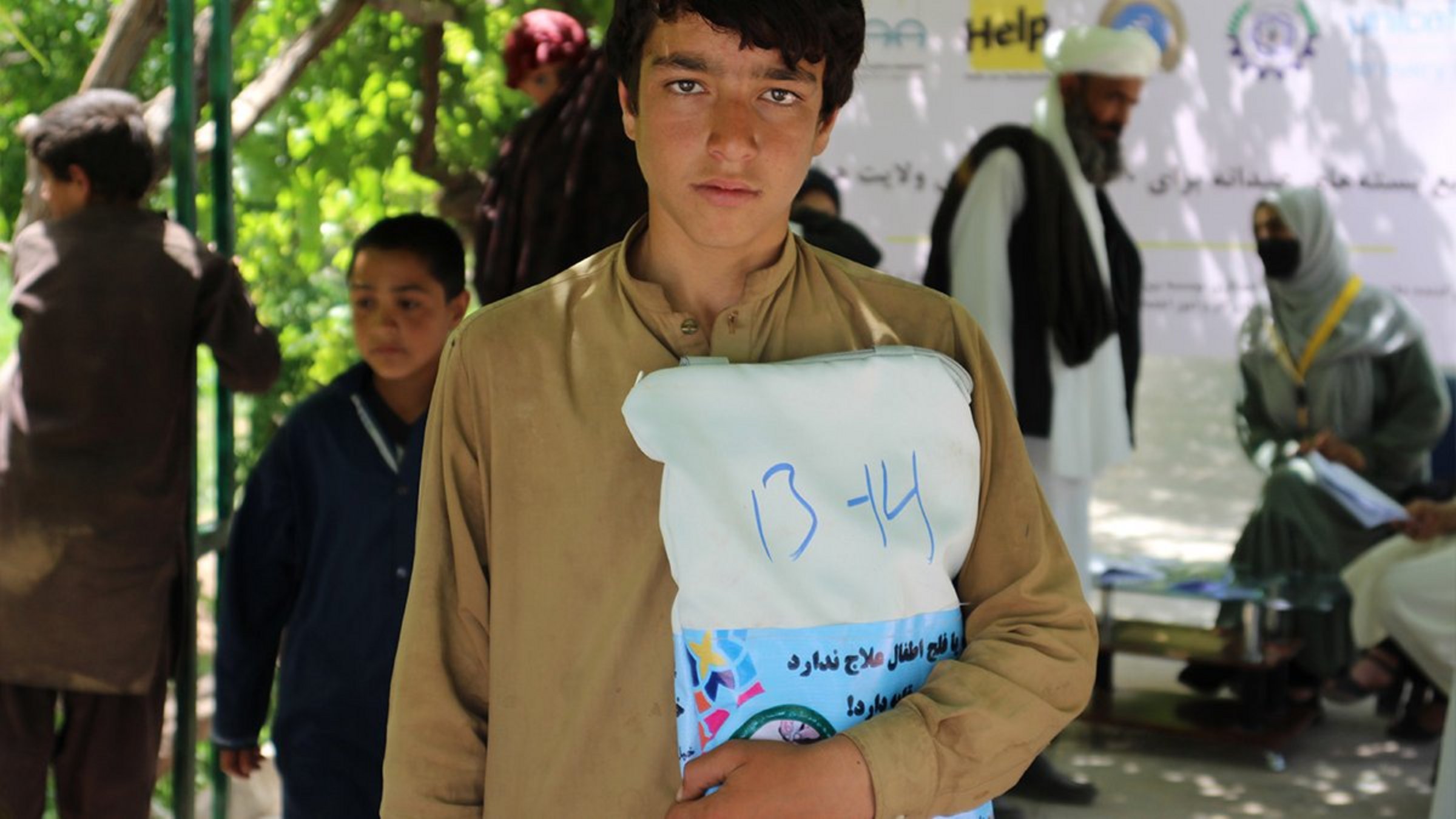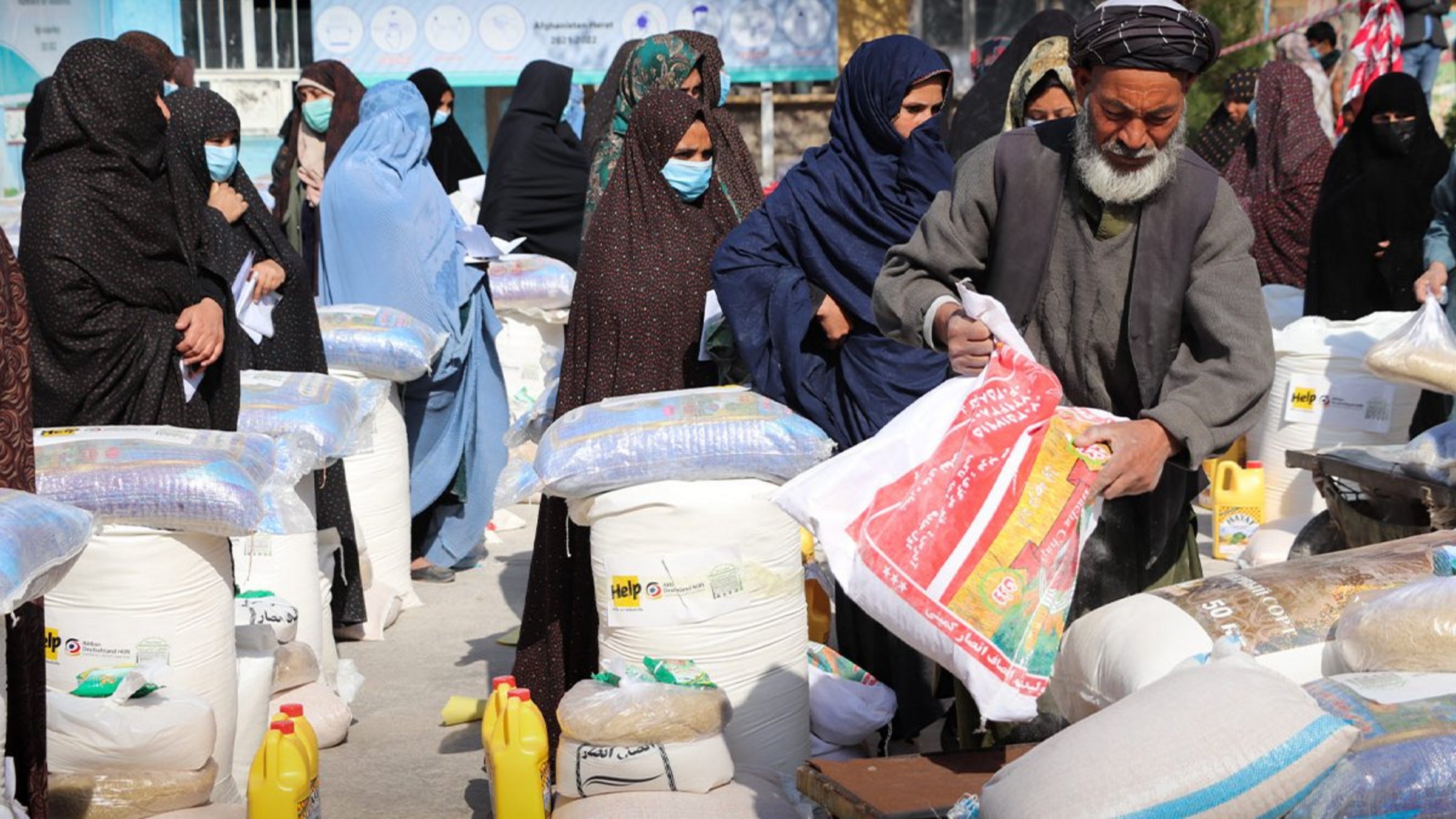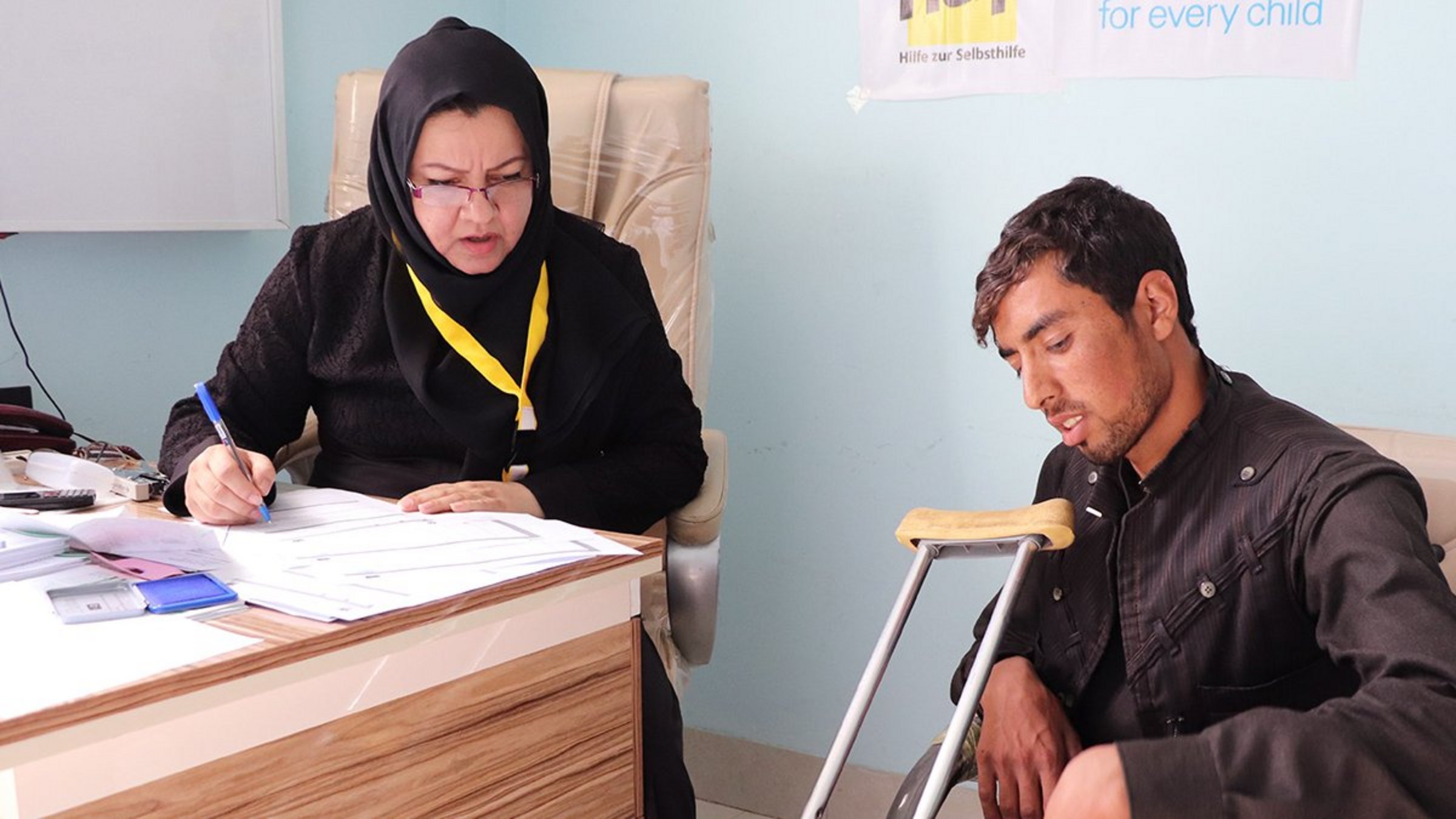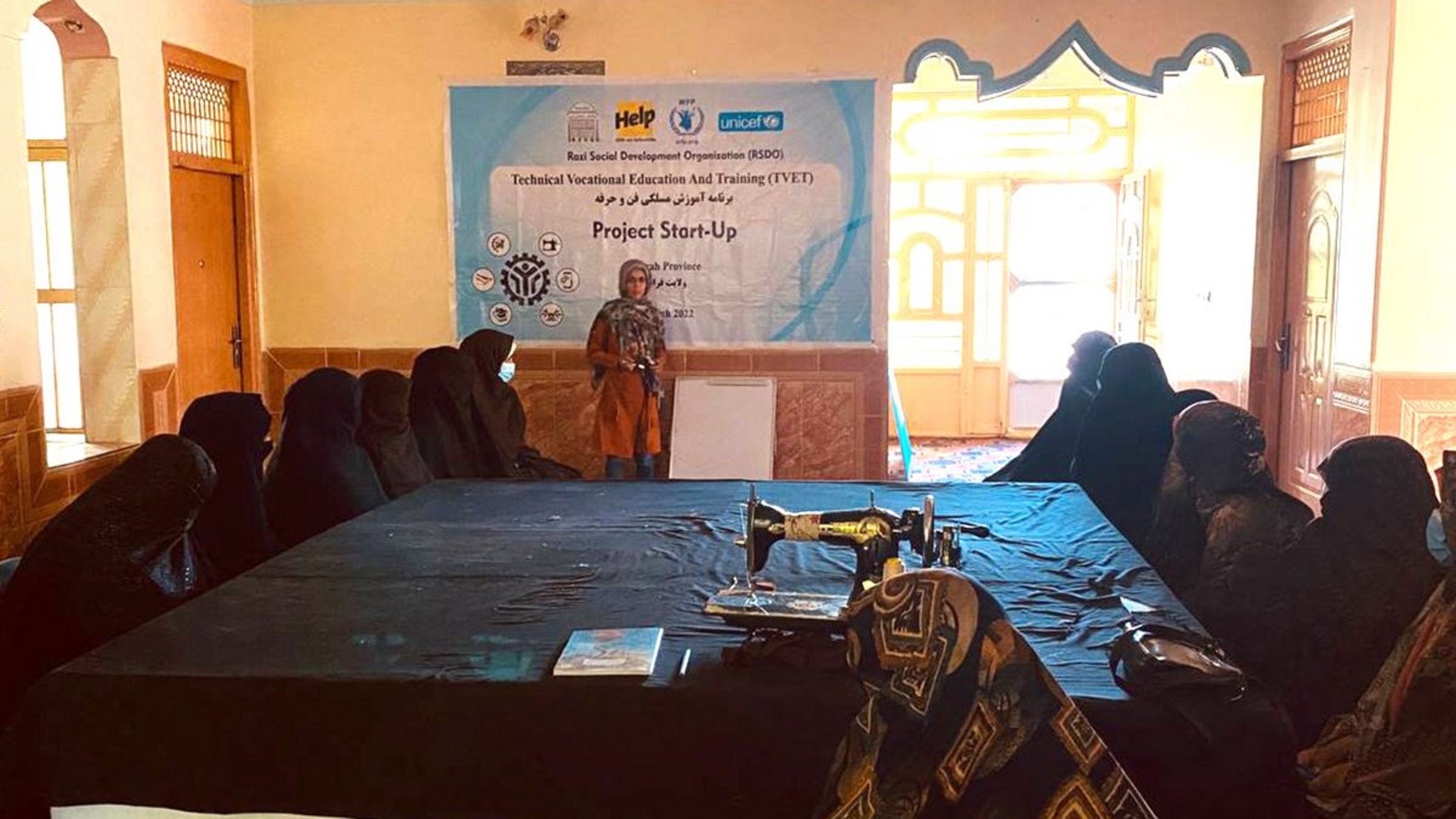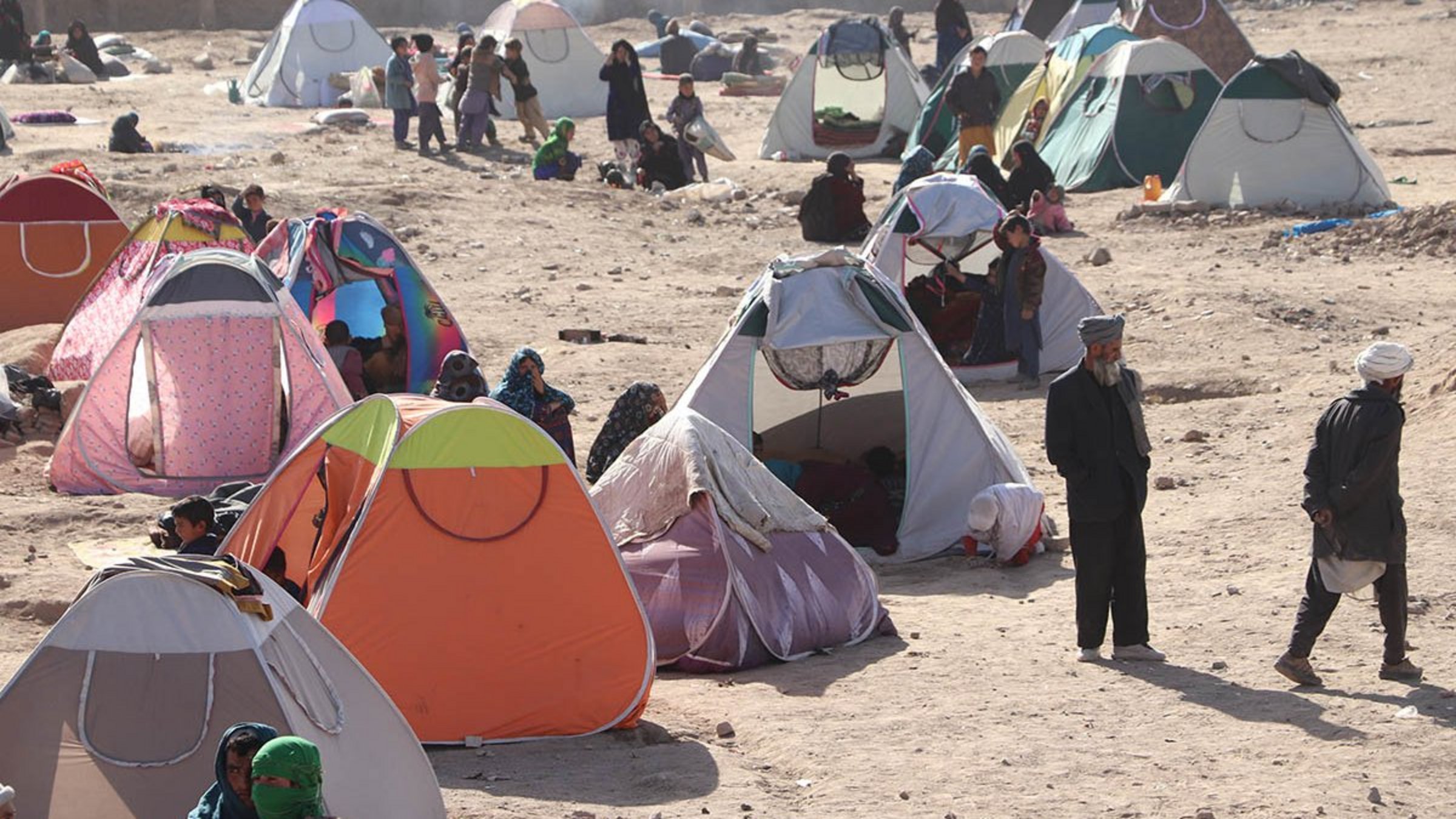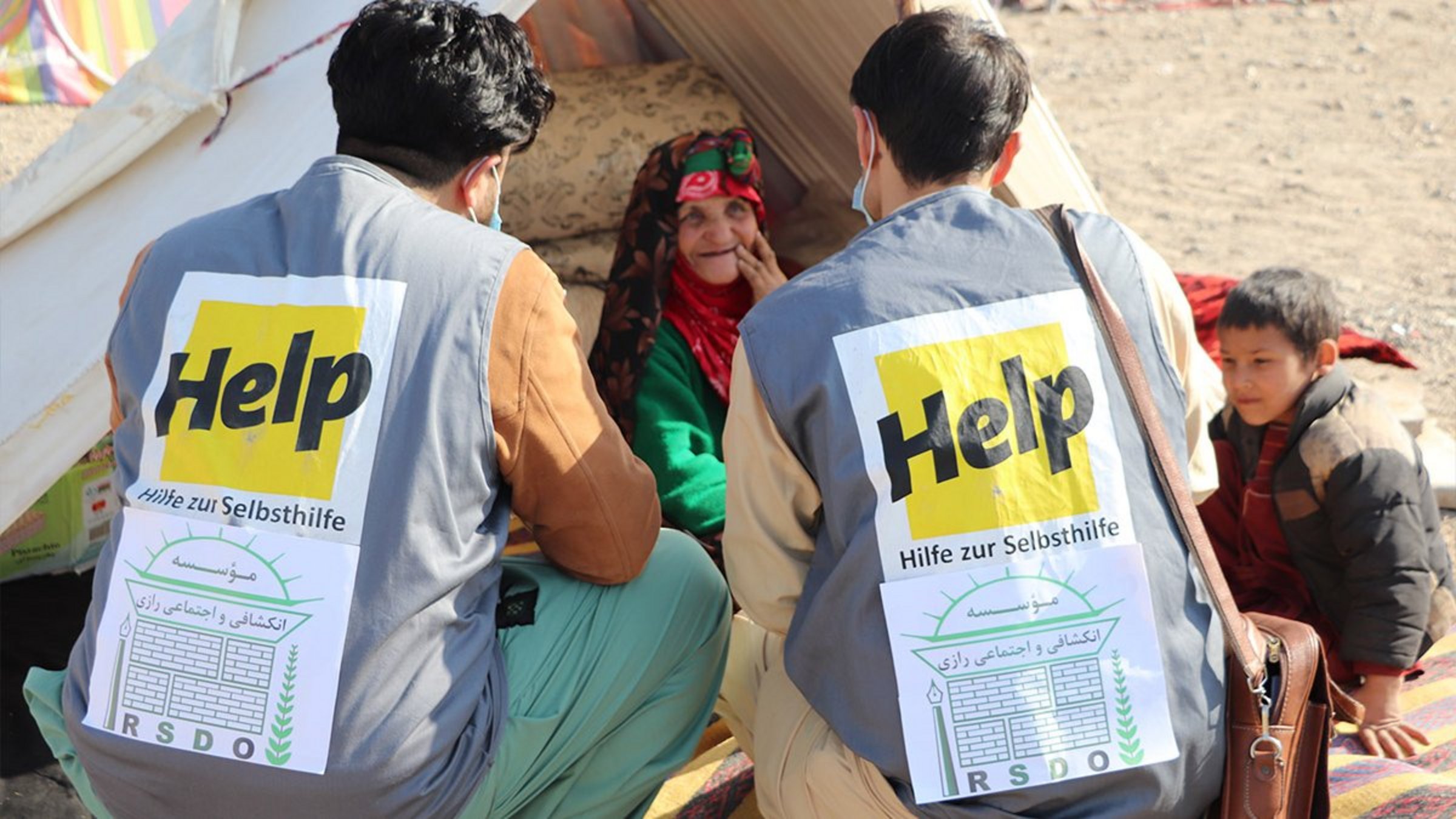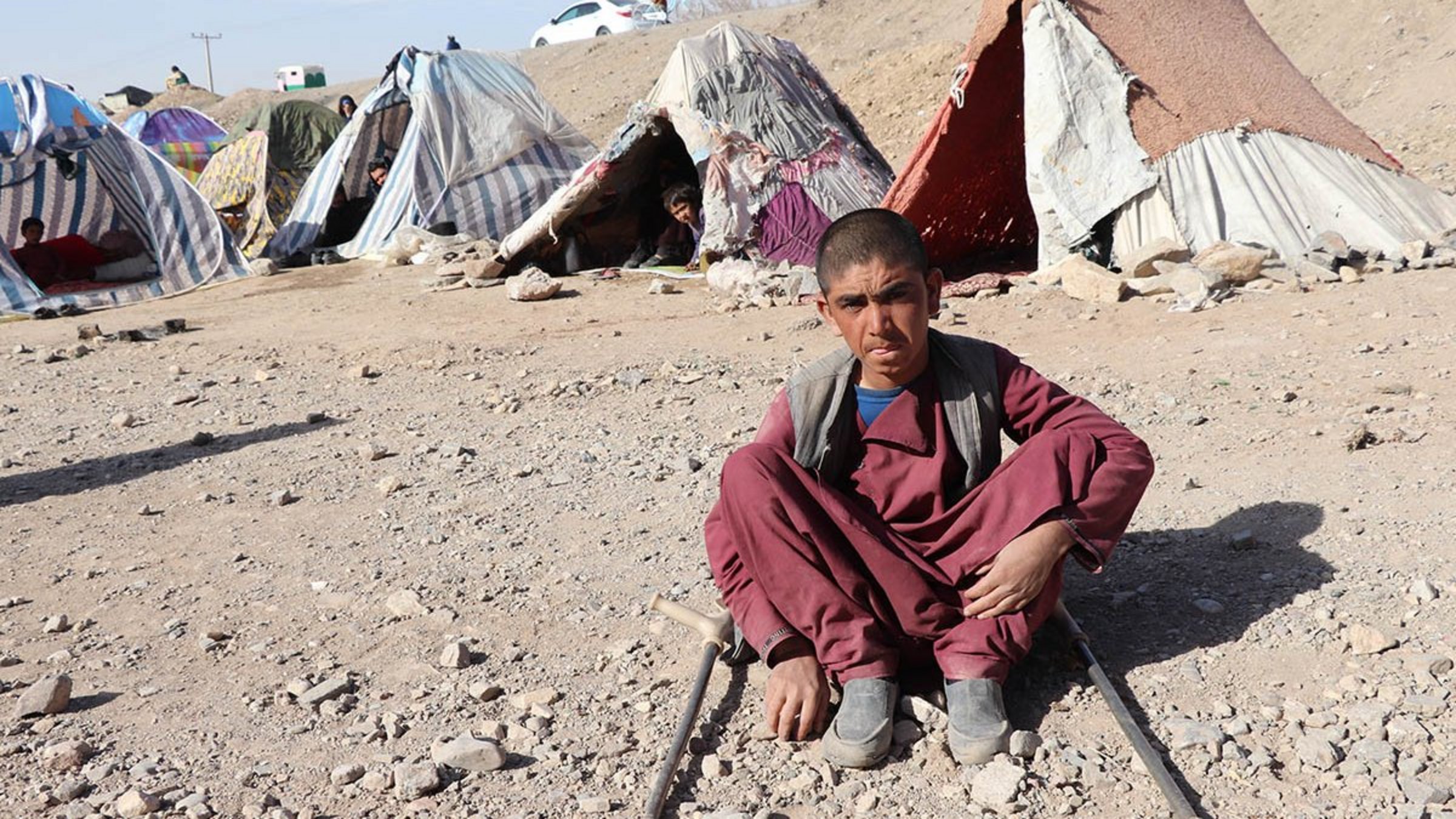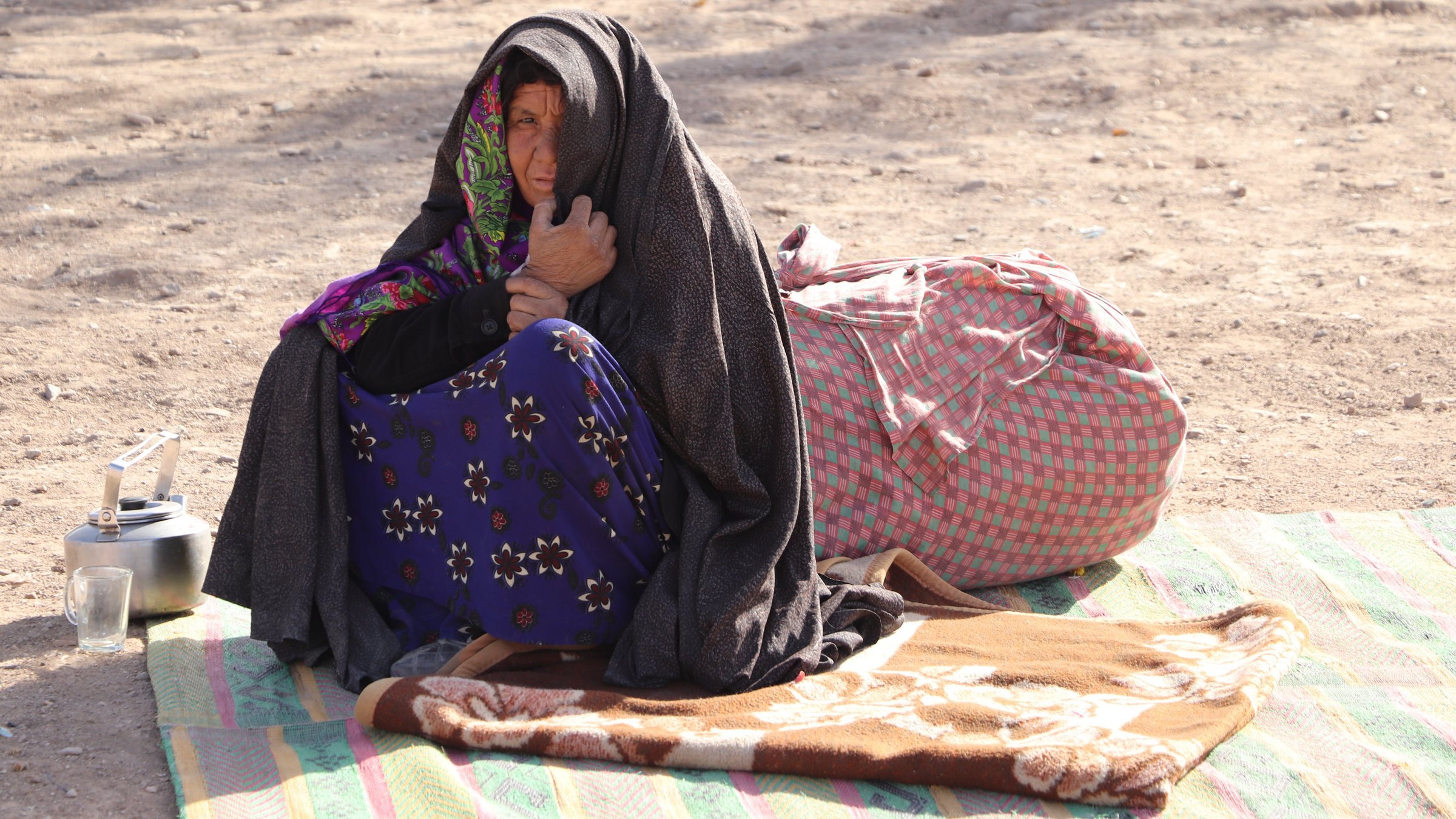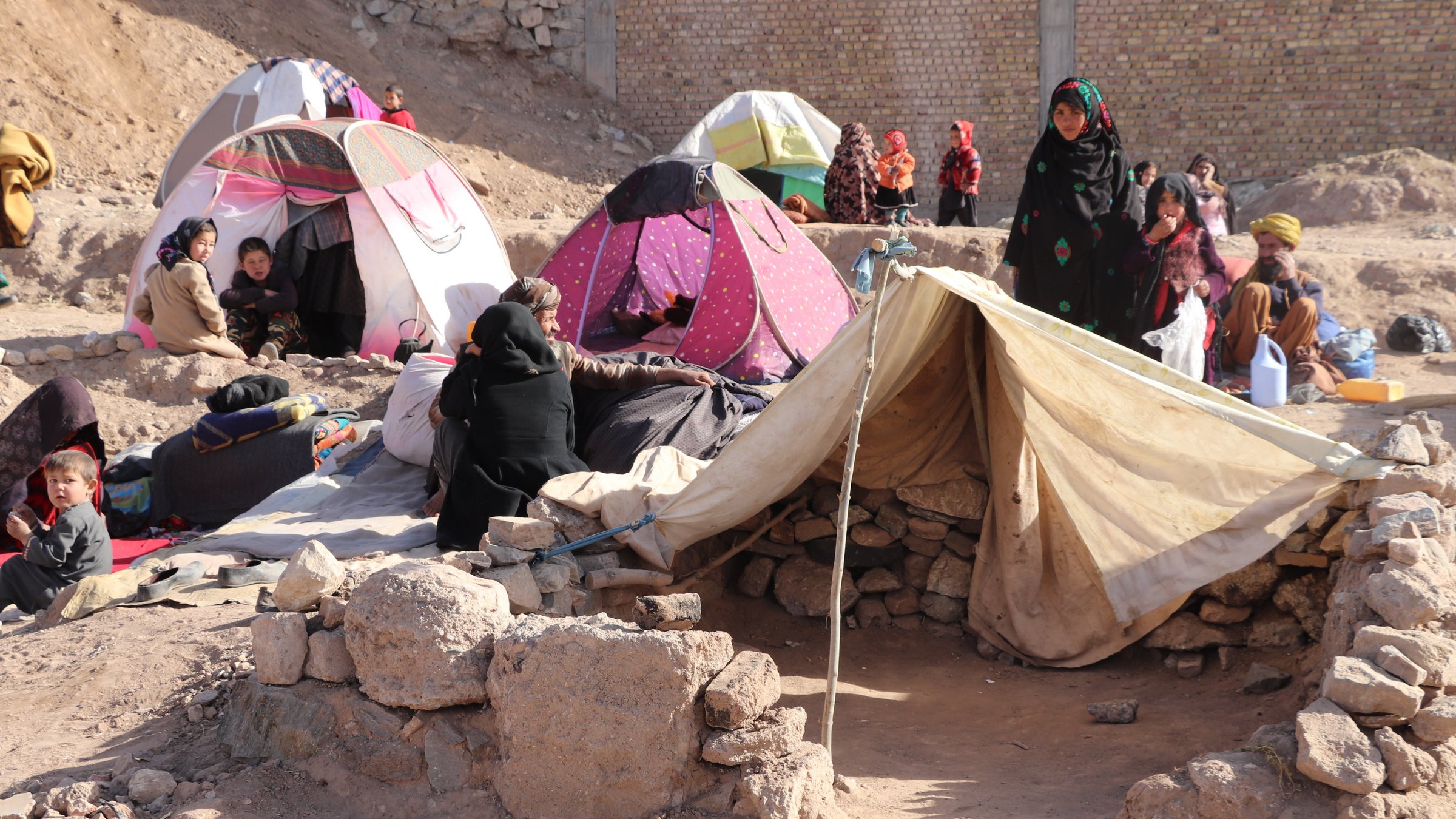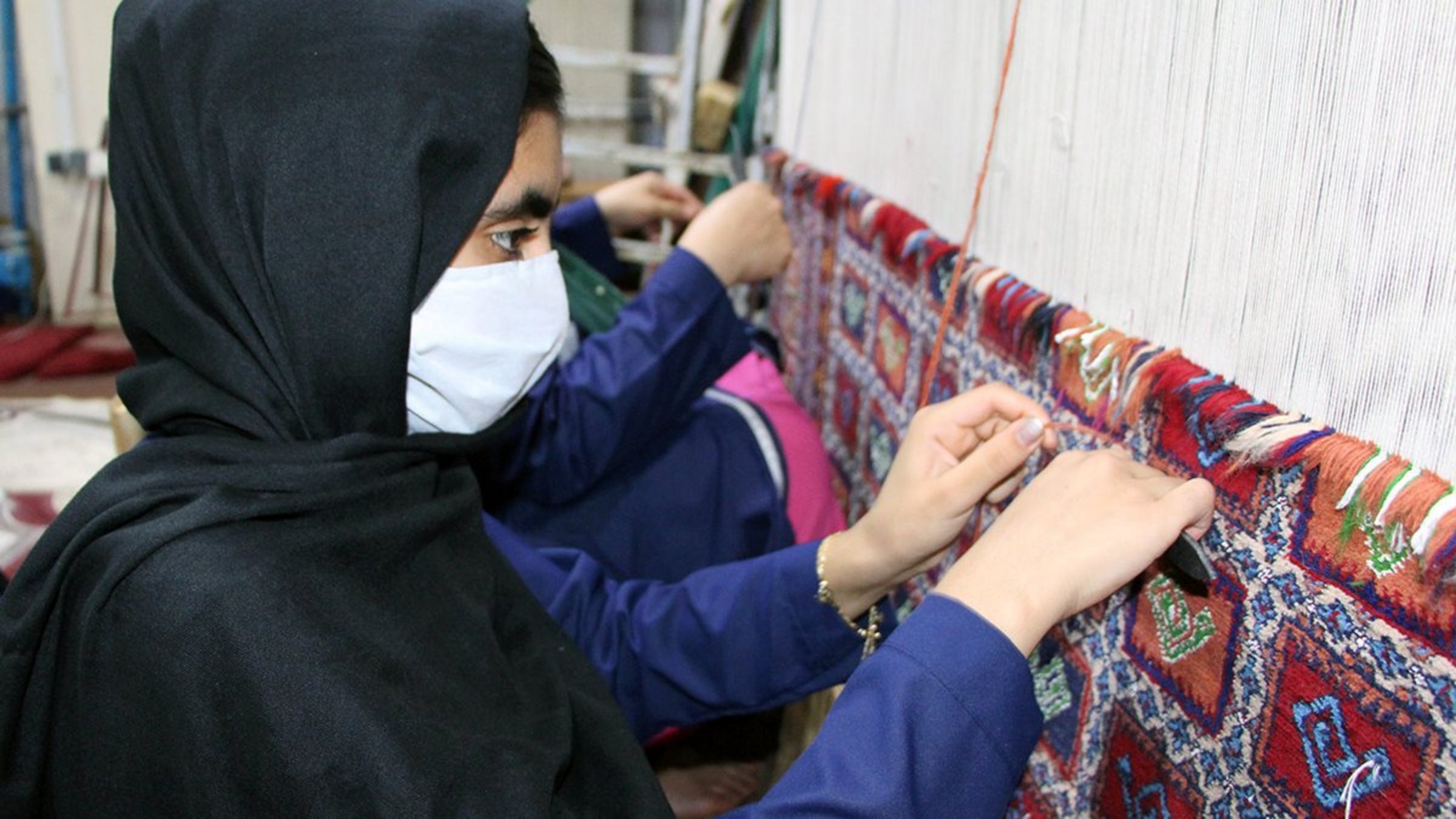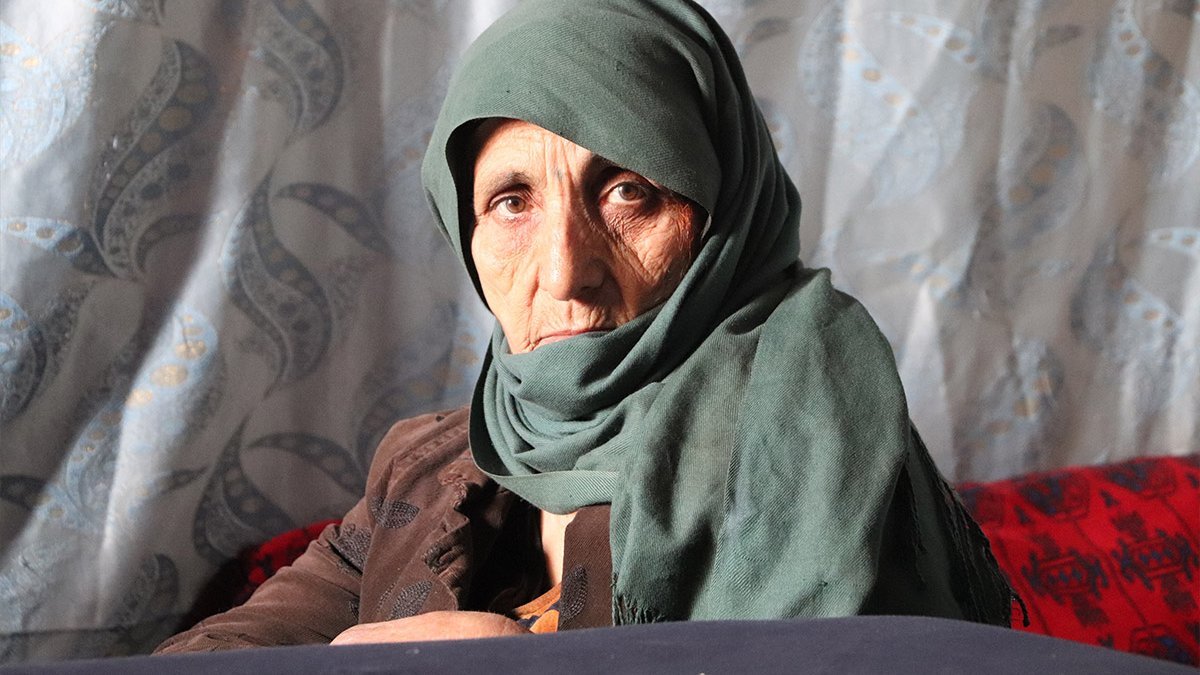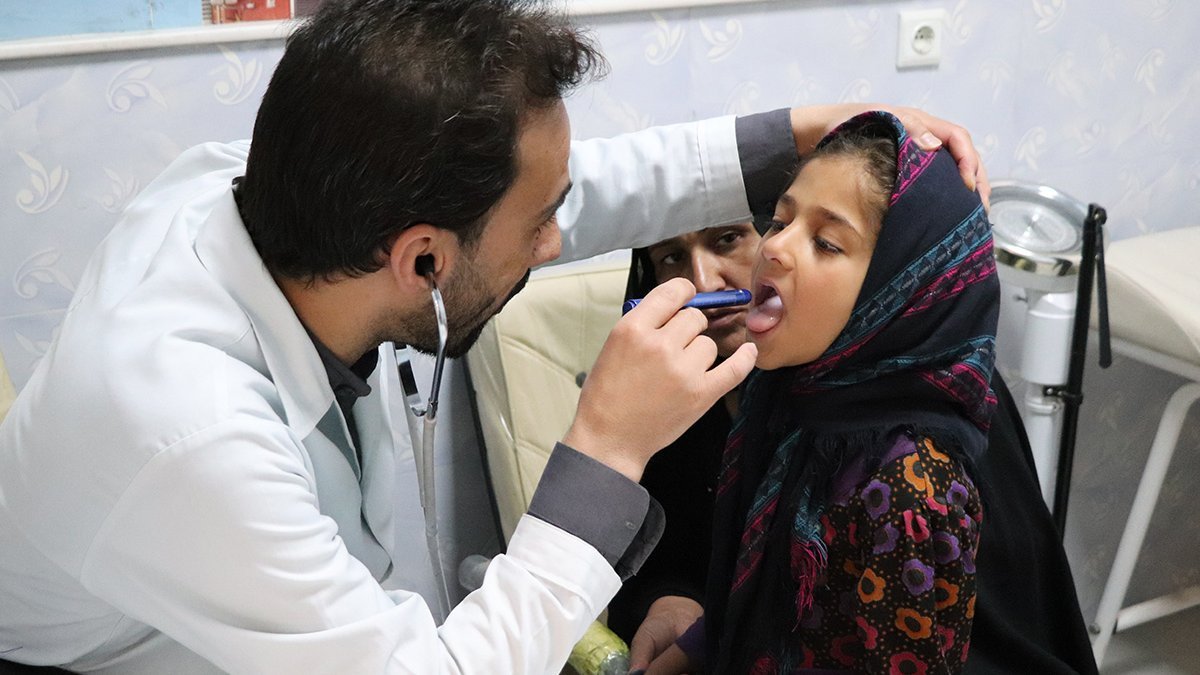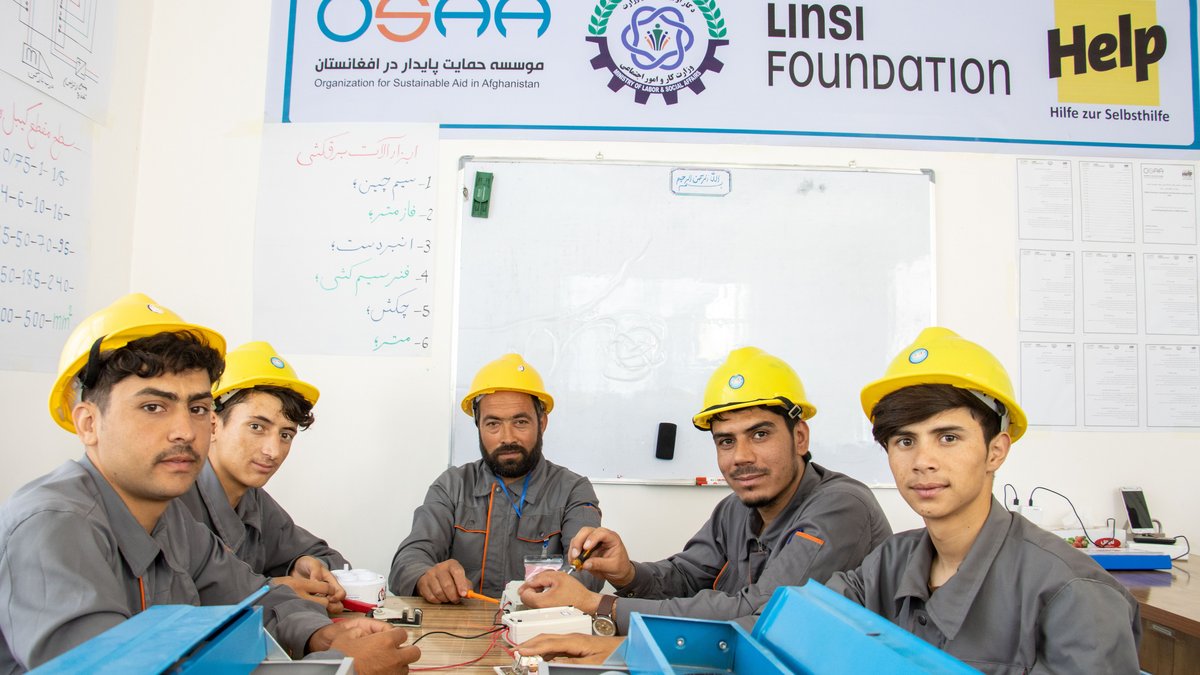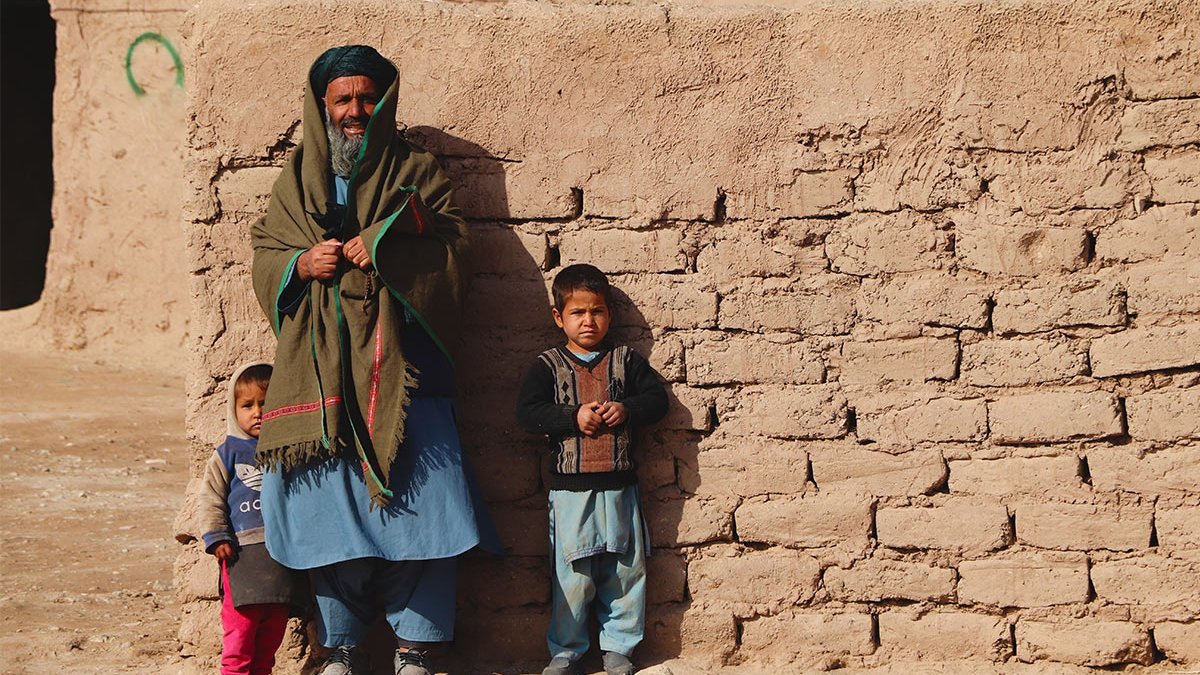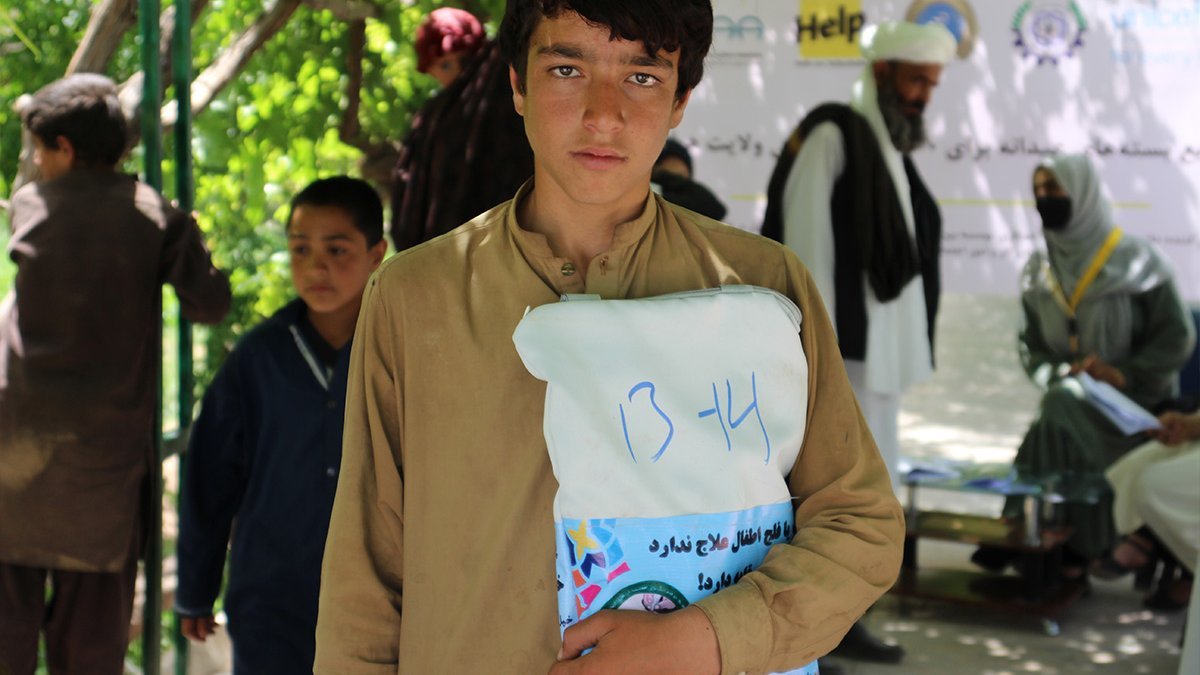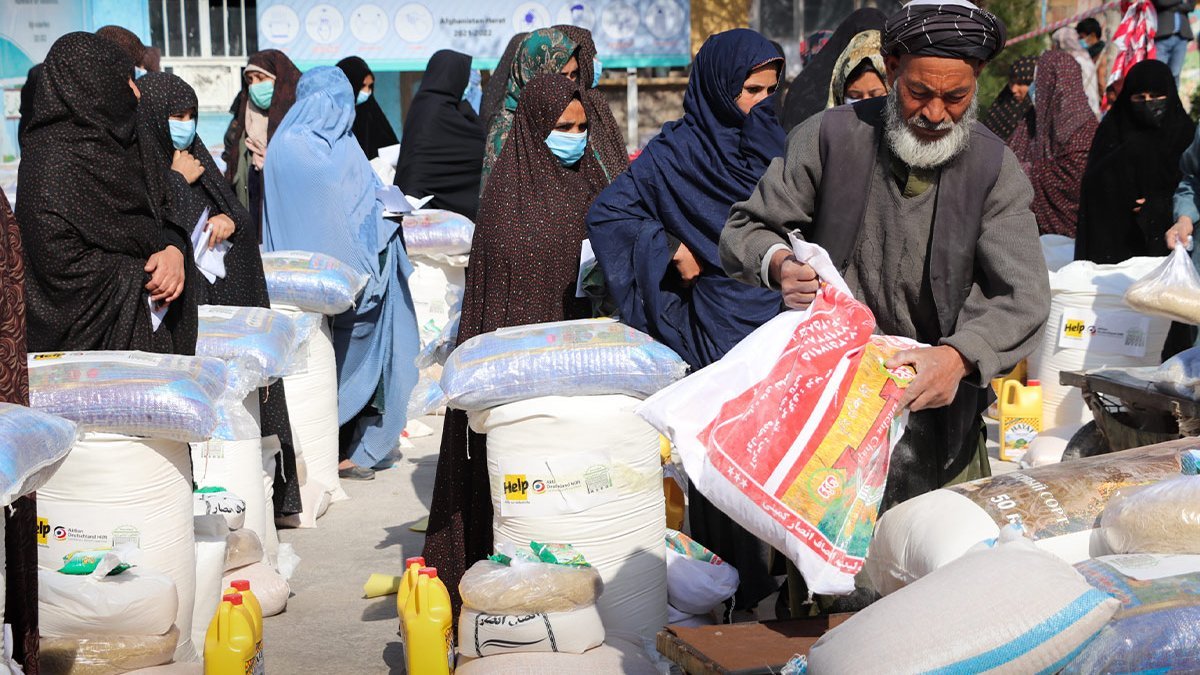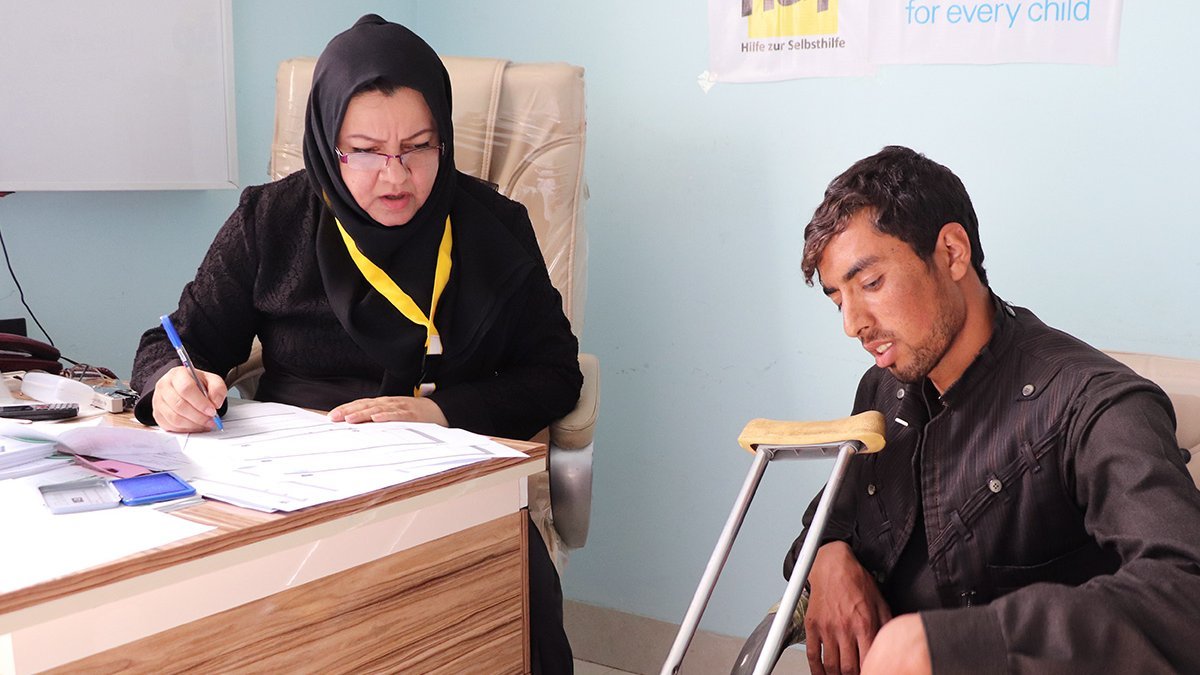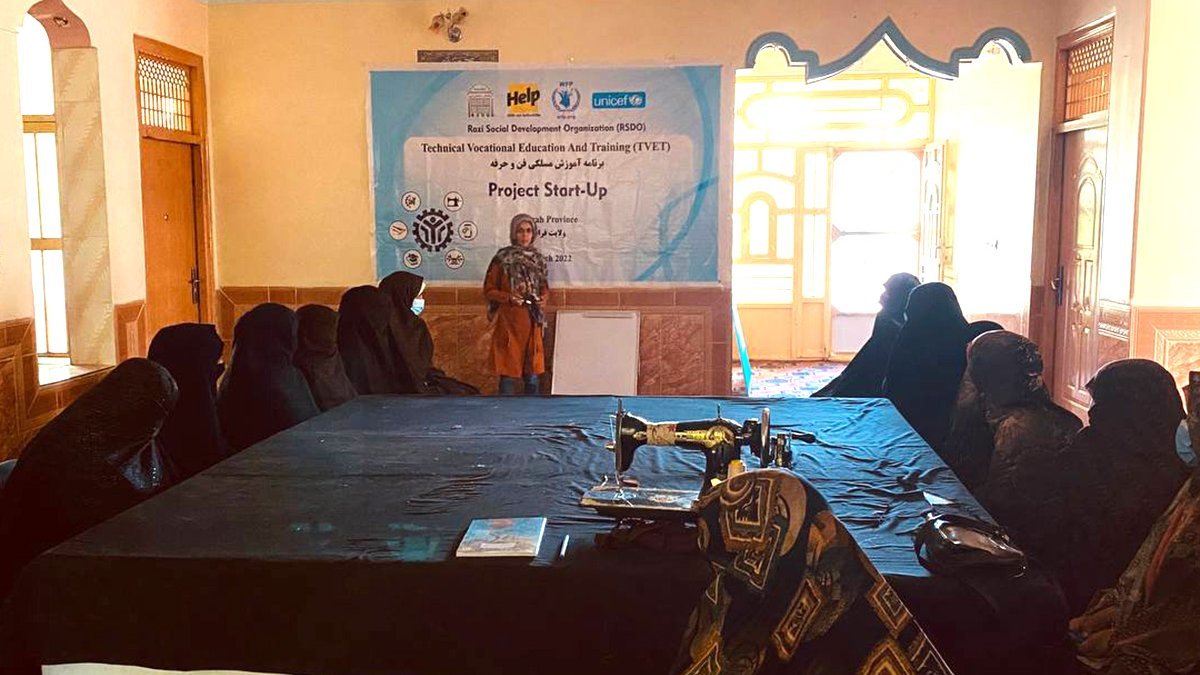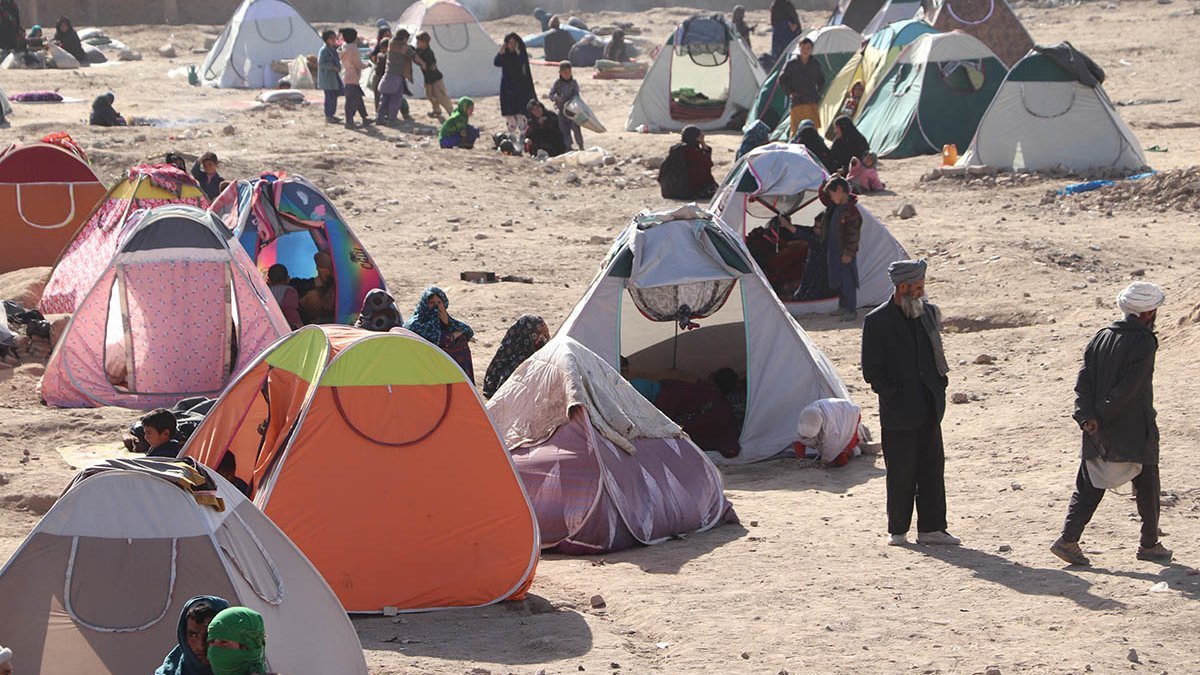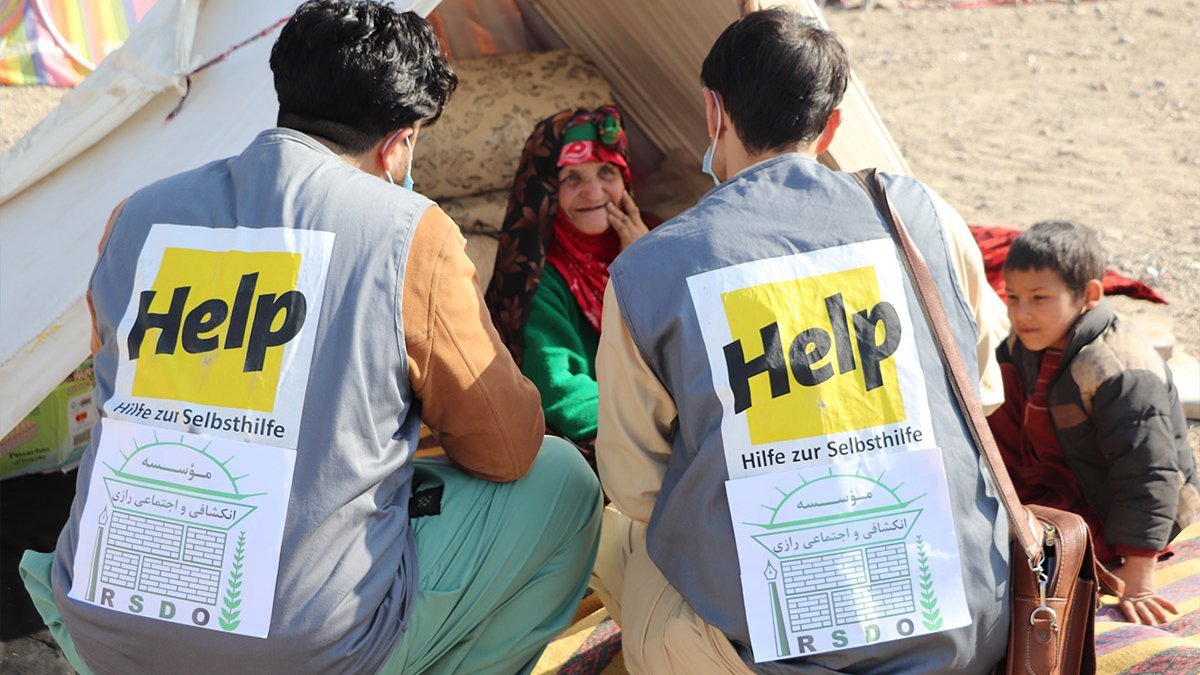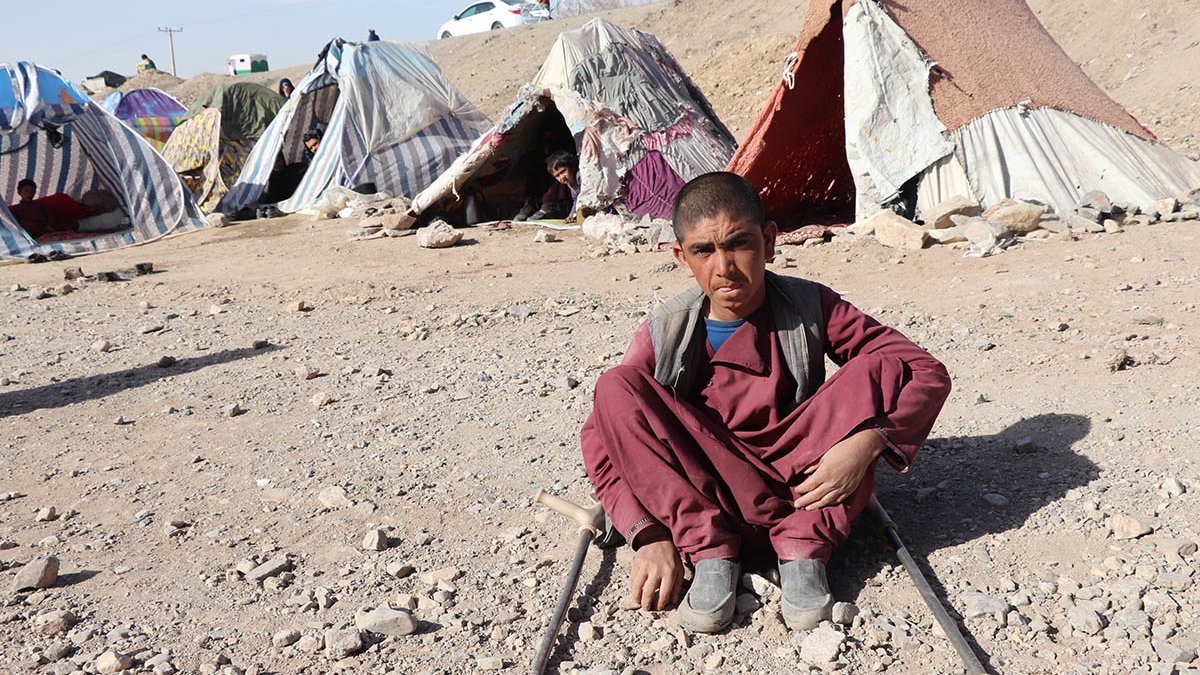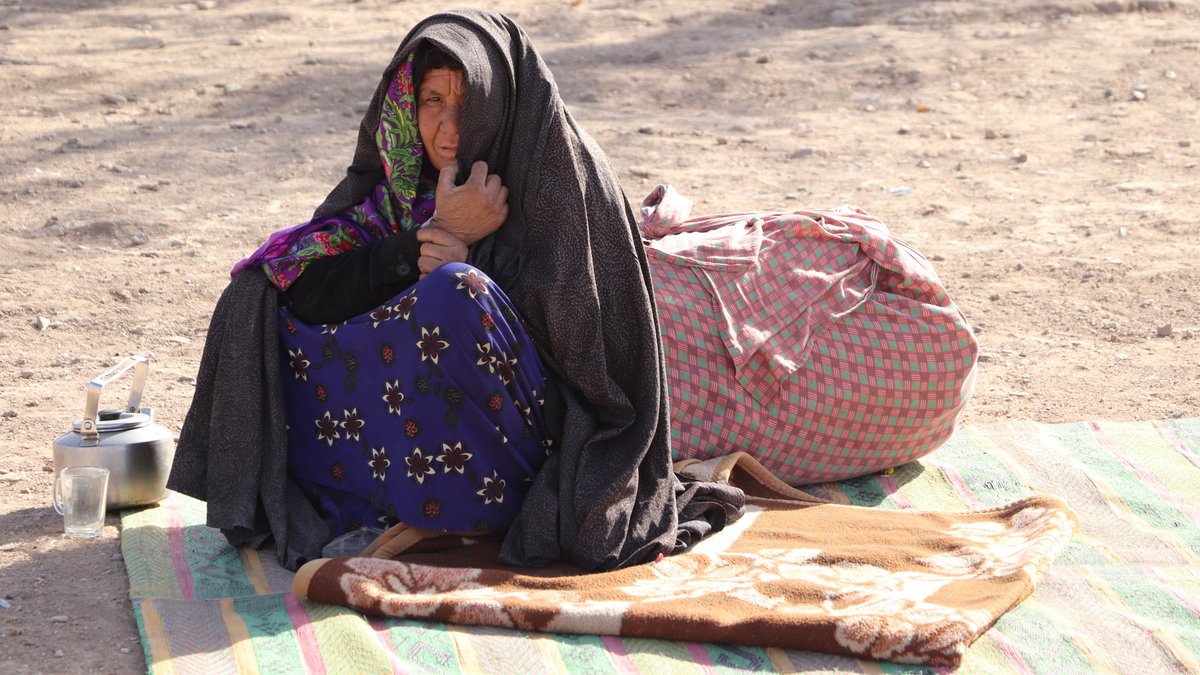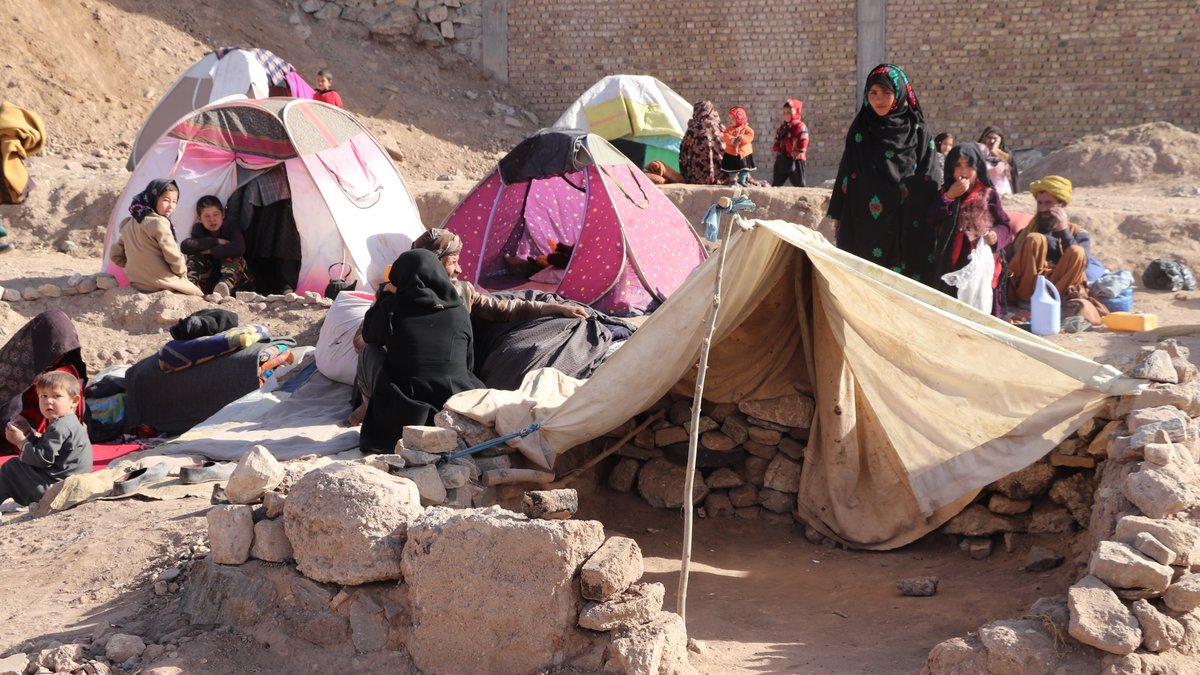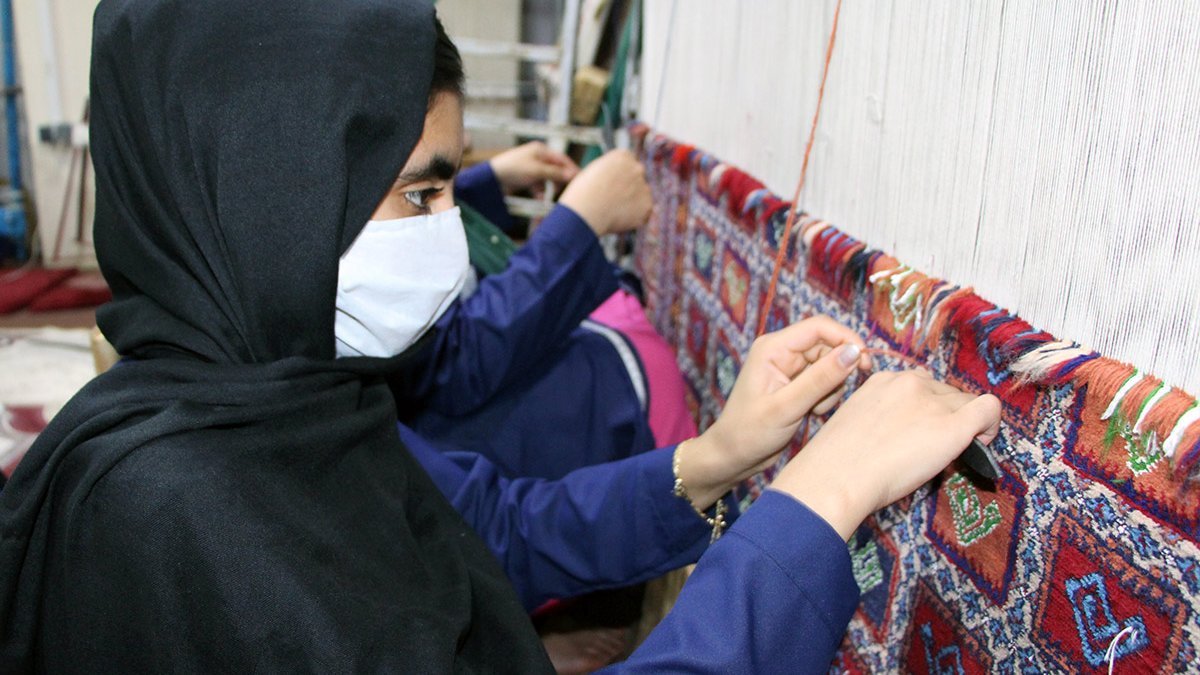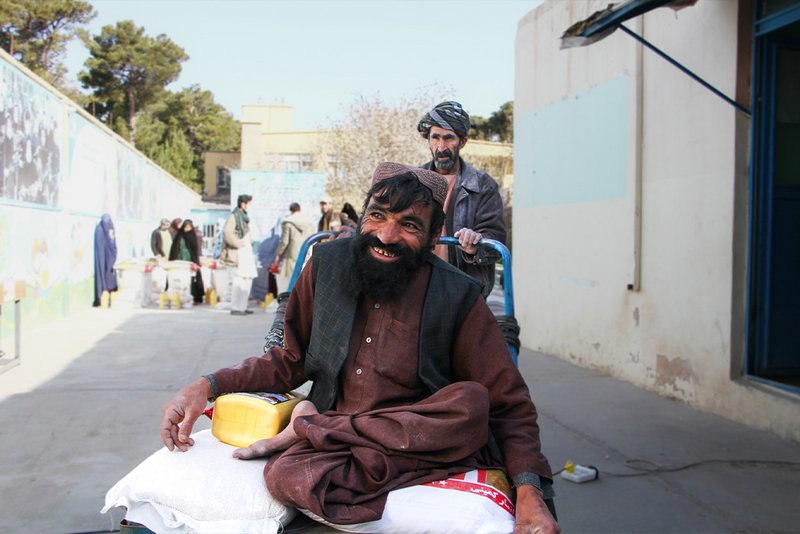Donate for Afghanistan
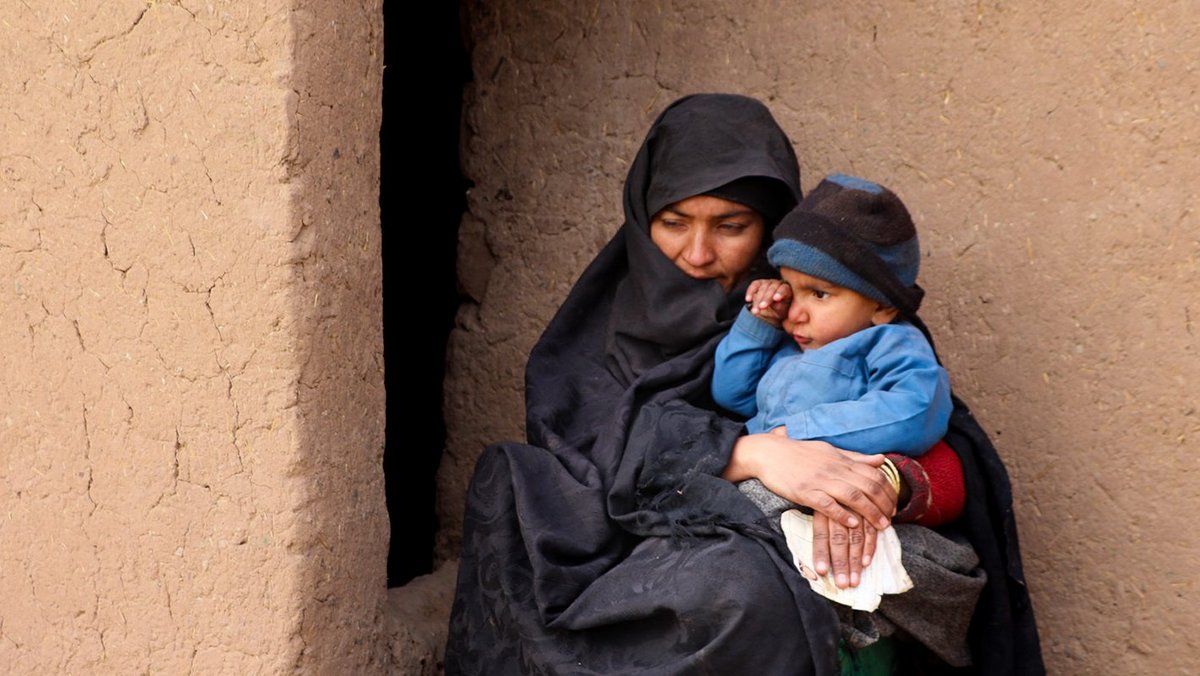
Emergency Aid for Afghanistan
Help was founded over 40 years ago to help Afghan refugees. After decades of successful development cooperation, the Taliban's return to power has triggered a serious humanitarian crisis. Help is still on the ground and supports the population in need: we strengthen health care for displaced people, are committed to protecting children and promote vocational training for young people.
How is Help providing support in Afghanistan?
Creating a future for children and young people
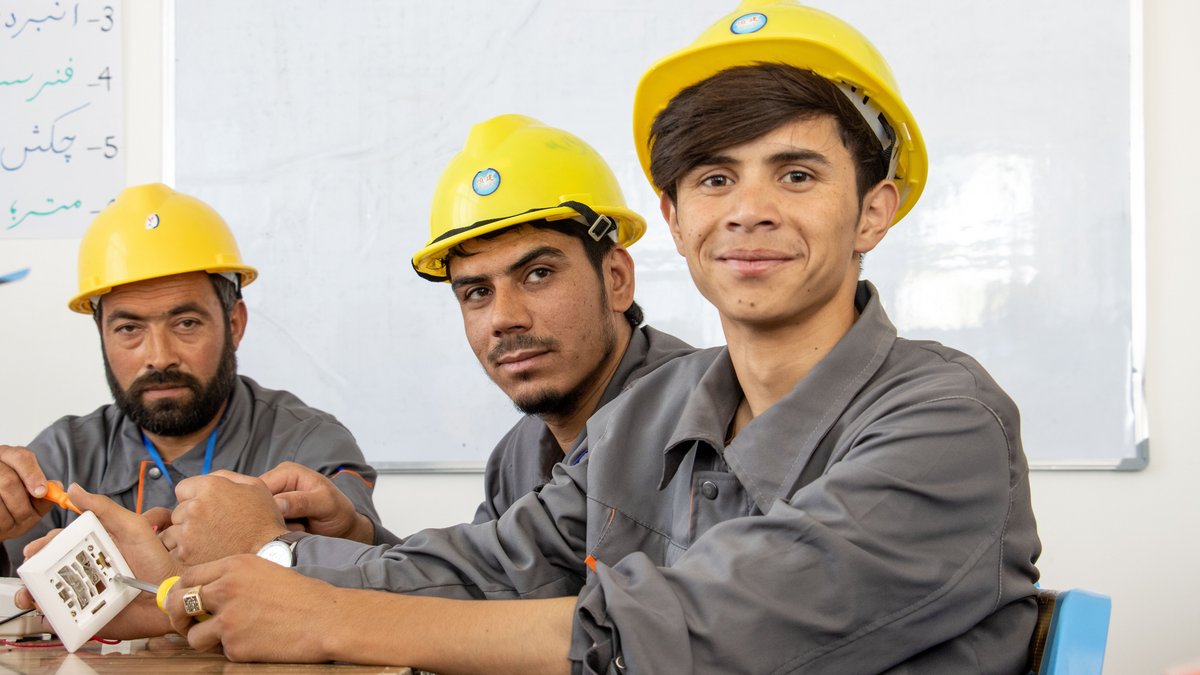
Over the past 20 years, Help has been committed to giving young people a self-determined future. We are now picking up where we left off and promoting vocational training in the western provinces of Herat, Badghis, Ghor and Farah. In addition to six months of training in manual trades, our project participants receive food aid and psychological support, among other things.
We are also dedicated to protecting children in need: we run two orphanages in Herat, have established emergency services for violence against children and provide psychosocial support for children, adolescents and their caregivers. In addition, we are strengthening health care on the border with Iran: in our health centre, more than 2,000 people are examined every day, in particular to enable the prevention and early detection of communicable diseases.
In the months after the Taliban came to power, our work on the ground focused on emergency relief measures: We distributed food and helped families buy winter clothing and hygiene items. From 1981 to 1997, numerous projects were implemented in Afghanistan and neighbouring countries in the areas of education, health and agriculture. Only during the Taliban rule from 1998 to 2001 did Help not implement any projects in Afghanistan.gesetzt.
What is the situation like in Afghanistan?
Violence is part of everyday life in Afghanistan
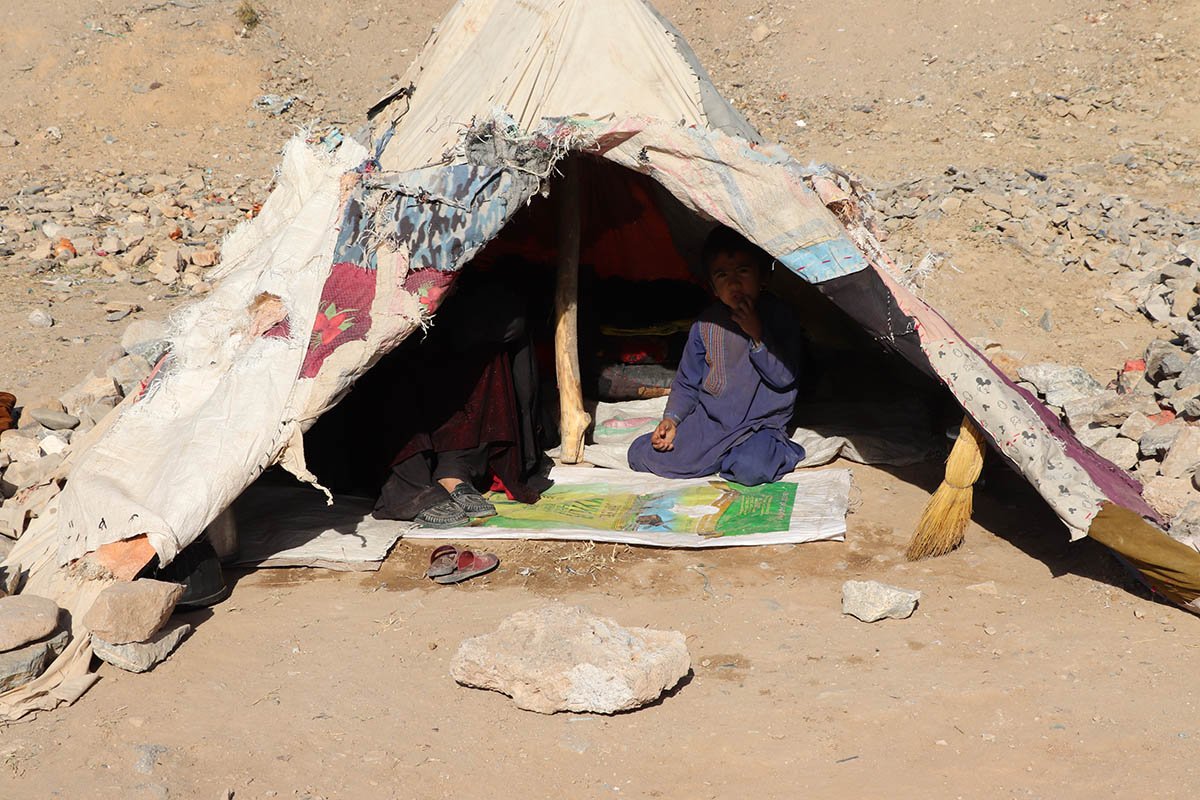
War, violence and oppression have dominated everyday life in Afghanistan for decades. The invasion and subsequent occupation by the Soviet Union (1979-1989) was followed by years of civil war, which culminated in the Taliban coming to power. Following the attacks of September 11, 2001, the international coalition toppled the Taliban rule in Afghanistan, but the danger to the civilian population from daily attacks remained.
Today, Afghanistan is once again the scene of a humanitarian crisis. As a result of the withdrawal of NATO and US troops, whose deployment has provided a certain degree of stability in recent years, fighting has flared up again in the strife-torn country. In 2021, the Taliban recaptured most of Afghanistan within a few weeks and took control of Kabul. Fearing the new rulers, many Afghan families have since tried to flee their country - mostly in vain. Over 29 million people in Afghanistan are currently dependent on humanitarian aid. Women and children in Afghanistan are particularly vulnerable in this situation.
Q&A
In July 2021, NATO and US troops withdrew from Afghanistan after a 20-year mission. Within a very short space of time, the Taliban once again took control of Afghanistan and have largely wiped out the development successes of the last 20 years.
There is great humanitarian need in the country: almost 20 million people do not have enough to eat and many people are on the run for fear of the new rulers. They are very worried about their safety. In particular, former employees of international organizations and their families are afraid of being tortured and killed by the Taliban.
On October 7 and 11, 2023, two earthquakes with a magnitude of 6.3 worsened the humanitarian situation once again. 20 villages were destroyed, 1,000 people lost their lives and 2,000 people were injured. According to UN figures, around 17,000 people are affected by the earthquakes and their consequences.
Our projects in Afghanistan are funded by the following donors:
- Federal Foreign Office
- Federal Ministry for Economic Cooperation and Development
- UNICEF
- PATRIP Foundation
- World Food Programme
Find out which local partners we are working with in Afghanistan: Our partners
The Taliban's return to power is a bitter setback for Afghan women. Over the past 20 years, they have fought hard for their rights and achieved a lot of progress: for example, they have been allowed to go to school, study, teach, work as lawyers and participate in political decision-making processes.
Despite the Taliban's promises to respect women's rights and grant freedoms, a different picture has emerged within a few months: female journalists, activists, politicians and lawyers are being massively threatened, girls are being denied access to secondary schools and the burqa has been made compulsory again.
Access to education is particularly important for women and girls. Help therefore focuses on promoting vocational training. We also run orphanages and are committed to protecting girls and boys. Both trainees and children receive psychological support as part of our projects.
You can donate easily and securely online for our work in Afghanistan: Donate online
Alternatively, you have the option of transferring your donation to our donation account:
Help - Hilfe zur Selbsthilfe e.V.
IBAN: DE47 3708 0040 0240 0030 00
BIC: DRES DE FF 370
Keyword: Afghanistan
A donation receipt will be issued automatically for donations of 10 euros or more. Donation receipts for donations received in 2024 will be sent by post in January 2025.

